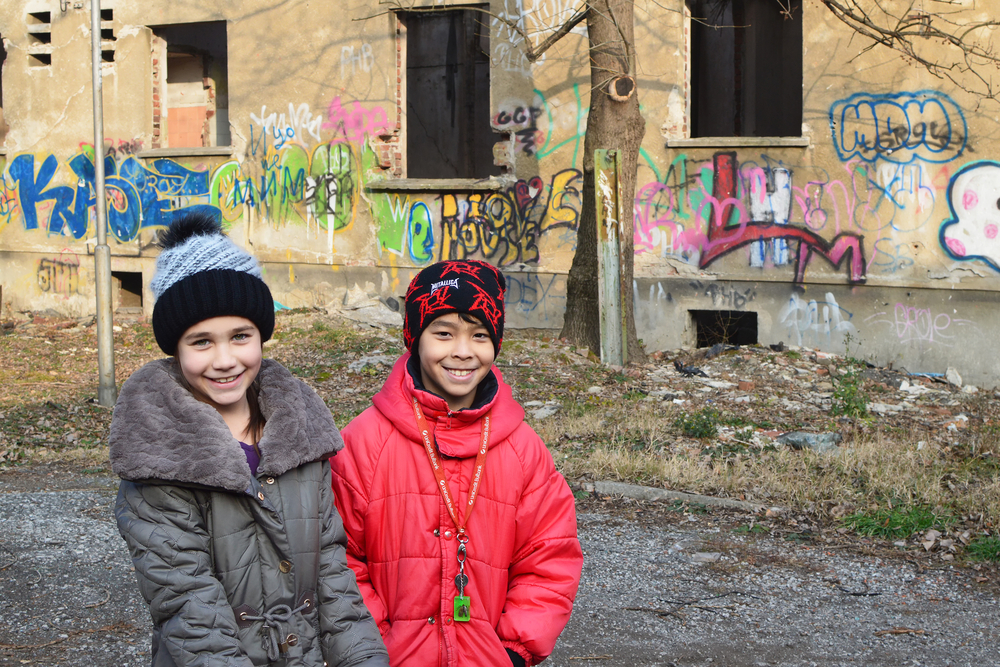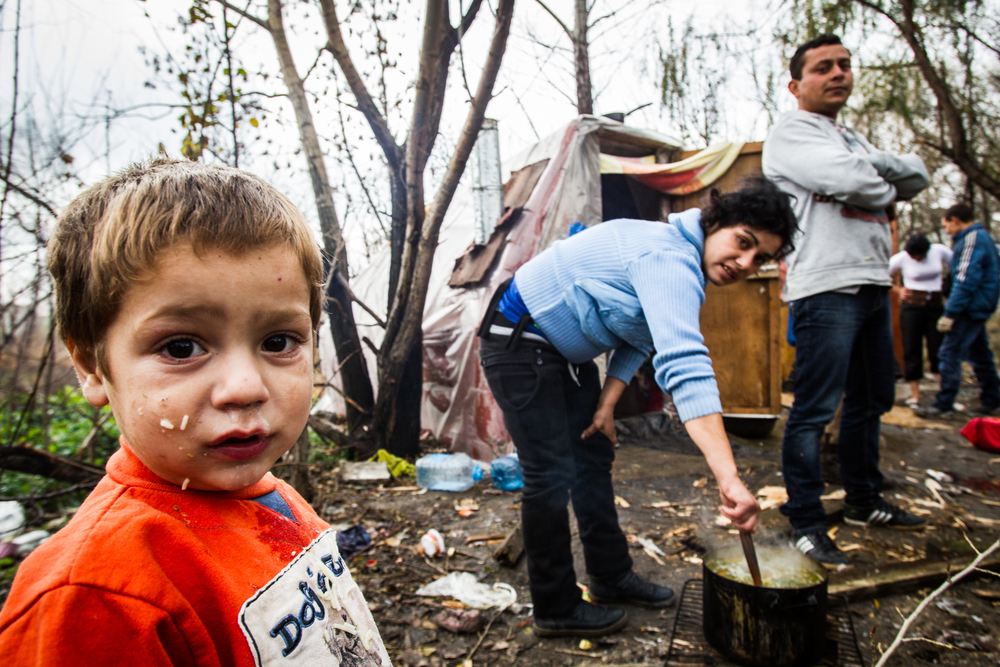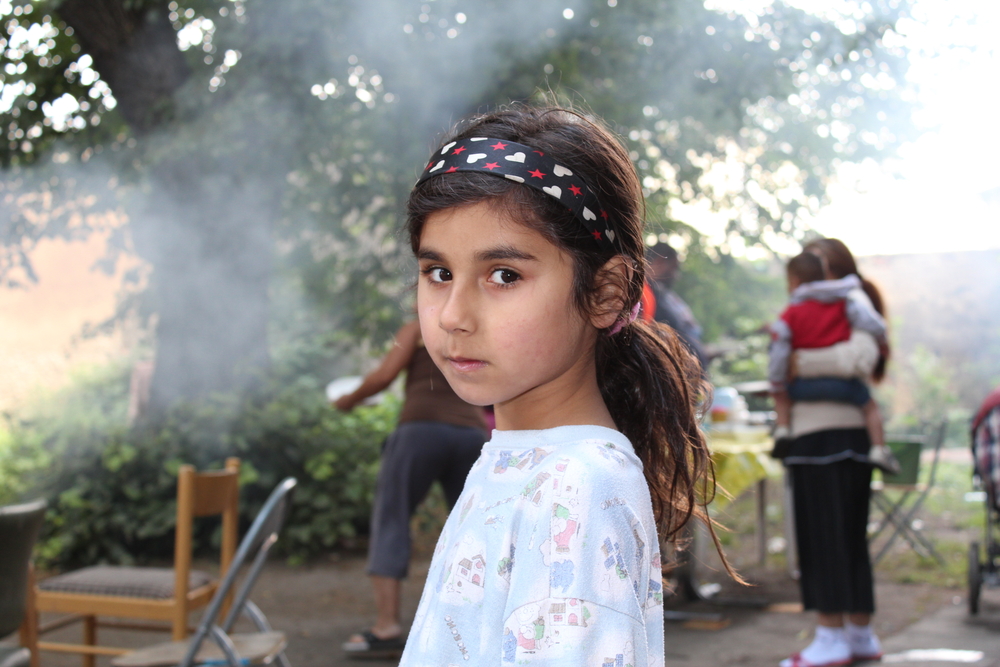Since they entered Europe from India, over a thousand years ago, Roma people have been racially discriminated against with regard to education, employment, housing, and other societal domains.
Although I have not been exempt from adversity and obstacles, I acknowledge how privileged I have been throughout my life. I am privileged to be born in a prosperous country that is making strides towards equality regardless of the color of my skin, the culture that I follow, or the religion that I practice. I am privileged to be born to financially stable parents who have supported all my aspirations unconditionally. I am privileged to be male in a still very patriarchal society. I am grateful for the many opportunities I have had, but I acknowledge that the world we live in is unfair. In every country there are many people who are very deserving yet bereft of the opportunities that I was given. It is my hope, and a fundamental goal of the Novak Djokovic Foundation, to better balance these scales especially with regard to Early Childhood Education (ECE).
While I do believe that our world is progressing on issues related to inequality, the Roma people are still regarded by many as patient-zero of the existence of widespread discrimination. Since they entered Europe from India, over a thousand years ago, Roma people have been racially discriminated against with regard to education, employment, housing, and other societal domains. Many countries passed laws to suppress their culture. They were enslaved in Hungary and Romania in the 15th century, and it is estimated that more than half of their population was exterminated by Nazi Germany 500 years later.
In the present day, discrimination against the Roma is still rampant. According to the EU human rights agency, there are 10-12 million Roma people in Europe. However, instead of being acknowledged as Europe’s largest minority, many Roma children are not even recorded when they are born and go on to lead lives without citizenship and denied access to education and medical facilities. In addition, Amnesty International have compiled cases where the French government have ignored court rulings and continue to evict people from Roma settlements with inadequate provision for other housing. Even when the 20% of Roma children manage to get access to primary school education, Amnesty International spotlights segregation in the schools. This problem is especially prevalent in the nations of Slovakia and Greece.

Copyright: Dimitrina Lavchieva
This boy who used to sit next to me pulled away his chair, and said he did not want to sit next to a Gypsy. Every week I am reminded that I am from Roma, that I am dirty and that I am different – Katya (not real name), a Romani girl attending a mixed mainstream school in Ostrava, Czech Republic.
The stunted education of Romani children is the biggest contributor to trapping Roma families in a vicious cycle of poverty. The majority of Roma children only have a shot at a, “ghetto school,” where the building is dilapidated, there are not enough classrooms, and power cuts are regular. If the children are not relegated to a container school, or school that boxes out Roma children from the rest of society, they are direct targets for bullying making the environment not conducive to learning.
International human rights doctrines – such as the Convention on the Rights of the Child, Education for All and Millennium Development Goals – declare all children a right to education. However, the issue of Roma education faces many cultural and institutional obstacles.
Cultural Obstacles
- Child Marriage: In Roma culture, there is a tradition of child marriage that mandates that both young girls and boys marry during their early teenage. With the responsibilities of adulthood, young Roma, especially females, tend to drop-out of school in favor of married life
- “Kidnapping”: Even when a Roma girl, and her parents, had the desire for her to pursue higher education, there is the danger of, “kidnapping” – a Roma custom where young Roma men may “kidnap” a young woman in order to marry her
- Language barrier: Most Romani children only speak the Romani language they learned in their household. This makes it difficult to integrate them into English-medium schooling
Institutional Obstacles:
- Budgetary Concerns: Education is expensive and with the average Roma family living well below the poverty line, it is difficult to afford. The priority for most Roma families is food and shelter not buying textbooks and school supplies. Hence, the state would need to fund a child’s education. Even if the Roma family is comparatively wealthy, the state would need to fund the education to incentivize the family send their children to school
- Local Government: Funding a Roma education program is not a priority in countries where Roma people are still very heavily discriminated against. Even when funding exists, the local governments lack initiative apply for the funding or seek to divert the funding towards non-Roma concerns.

Editorial Credit: Liukov / Shutterstock.com
Governments’ Action Steps in Order to Ameliorate Roma Education
Despite the many intricate problems, there are some priority action steps that a government should take in order to ameliorate the current state of affairs with regard to Roma education.
Step 1: Teaching Mutual Tolerance – Although difficult to correct, discrimination is the crux of the problem. Schools should emphasize the importance of tolerance at the academic level with in-class programs. Furthemore, after-school programs should be designed to bring Roma children and other students together and share their cultures with one another.
Step 2: Engaging the Roma in a dialogue on Education – To tackle the culture barriers to Roma education, the Roma community must recognize that the improvement of the Roma educational situation requires action not only by the state, but by the community itself. The Roma people need to understand the importance of education in the aggregate and eager to send their children to schools.
Step 3: Improving the Status of Roma Assistants – Roma assistants are adults of Roma origin that are hand-picked from the Roma community. Their job is essentially to bridge the gap between schools of the EU and Roma parents and children. In the majority of districts, Roma assistants do not receive employment benefits such as health insurance or paid vacation. Instead they are treated as seasonal workers that are hired on a non-contractual basis. By making reformations to better include them as part of the community, Roma Assistants can serve as vital catalysts to progressive Roma educational reform.
Step 4: Introducing Holistic Educational Methods – Most early childhood education methods in the EU depend on rote-memorization. Under such a system, a child with difficulty speaking the language falls extremely behind his peers. Schools should adopt more progressive and interactive teaching styles as the interactive model focuses on the child as an individual with individual needs.
April 8th is International Romani Day – a day dedicated to celebrate Romani culture and raise awareness of the many issues facing Romani people. In order for this day to be truly progressive, it is important for all of us to acknowledge our privilege, spread awareness of the challenges faced by the Romani and even take the time to learn a little bit about Romani culture.
I know I will – I hope you will join me.











